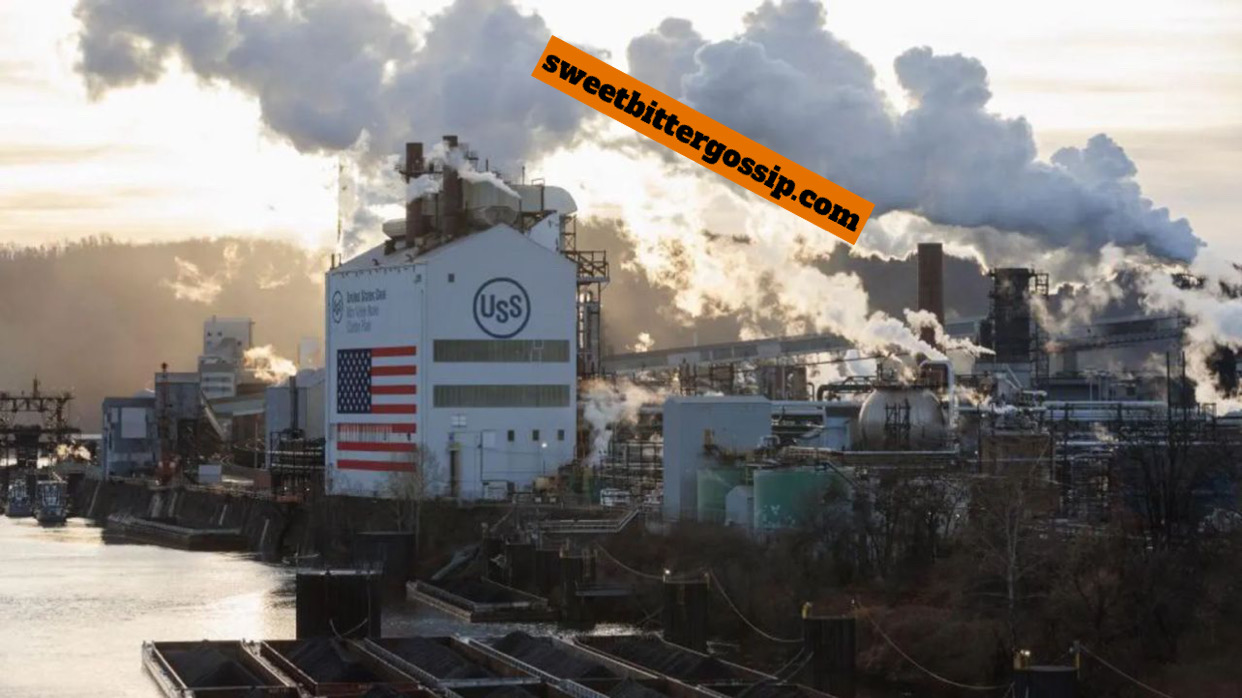President Joe Biden has blocked the $14.9 billion acquisition of US Steel by Japan’s Nippon Steel, delivering on a major political promise despite concerns that the move could harm US-Japan relations and discourage foreign investment in the country.
Biden’s decision, announced on Friday, centers on national security concerns, with the president emphasizing that maintaining US ownership of steel producers is essential to ensuring the strength of the domestic steel industry and safeguarding vital supply chains. His intervention comes after growing pressure from labor unions, particularly the United Steelworkers (USW), which had opposed the deal, arguing that it could jeopardize American workers and undermine the industry’s future stability.
The two companies involved in the deal, Nippon Steel and US Steel, have condemned Biden’s decision, arguing that the review process had been politically motivated. In a joint statement, they claimed the review had been “corrupted” and said the rejection was a political maneuver aimed at scoring points during an election year. The companies also signaled their intent to take legal action if necessary to protect their rights, stating that the move sent a “chilling message” to other foreign companies looking to invest in the United States.
The Japanese government also expressed strong disapproval. Japanese industry and trade minister Yoji Muto called the decision “incomprehensible,” stressing that it could have long-term repercussions for future economic relations between the US and Japan. According to Muto, both US and Japanese economic circles were concerned about the implications of Biden’s rejection, which could result in a more cautious approach to future investments between the two countries.
Nippon Steel’s proposed acquisition of US Steel, first announced in December 2023, raised concerns on both sides of the Pacific. US Steel, a historic 124-year-old American company, was seen by many as a symbol of American industrial power, though it has faced significant challenges in recent years. The company had warned that without a major investment, it might be forced to close down factories, leading to job losses and other economic consequences. While Nippon Steel promised not to cut jobs, US Steel’s workers and some local politicians in Pennsylvania had echoed concerns about the potential impact of foreign ownership.
The two companies had attempted to secure public support by offering commitments to preserve jobs, build a workforce training center, and grant the US government the right to veto production cuts. Despite these efforts, Biden remained resolute in his opposition. The president, whose administration has emphasized “buy American” policies and made worker protection a central part of its platform, had voiced reservations about the deal early in 2024, as election season approached. With Pennsylvania set to play a critical role in the upcoming presidential race, Biden’s move was seen as aligning with his political base, which includes a large number of union workers.
The decision also received sharp criticism from former President Donald Trump and Vice President-elect JD Vance, both of whom are popular among union workers. Their political campaigns focused heavily on advocating for American workers and protecting domestic industries from foreign influence.
A panel tasked with reviewing the deal for potential national security risks failed to reach a consensus by the end of December, leaving Biden to make the final decision. In his announcement, the president reiterated the strategic importance of having a domestically owned steel industry, emphasizing that steel is vital for infrastructure, the auto industry, and the defense sector. Biden argued that a strong, American-owned steel industry is crucial for the nation’s overall security.
The United Steelworkers union praised Biden’s decision, calling it a “right move” that would help ensure the long-term health of the US steel industry. Union President David McCall expressed gratitude to Biden for his continued commitment to American workers.
While Biden’s decision was welcomed by labor groups, it could have significant repercussions for US-Japan relations. Some analysts believe that Japan, as a close ally of the United States, may view the rejection as a signal that the US is becoming more protectionist in its approach to foreign investments. Additionally, there are concerns that this could deter other foreign companies from investing in the US, fearing that their deals may be scrutinized or blocked for political reasons.
Shares of US Steel fell by more than 5% following the announcement. However, analysts suggest that this may not mark the end of the deal. The 30-day deadline to abandon the acquisition can be extended, and some experts speculate that the companies might try to revisit the deal under a different administration, particularly if former President Trump were to return to office.
White House spokesperson John Kirby defended the decision, emphasizing that it was not targeted at Japan, but rather focused on maintaining a strong, domestically owned steel industry to ensure national security.

